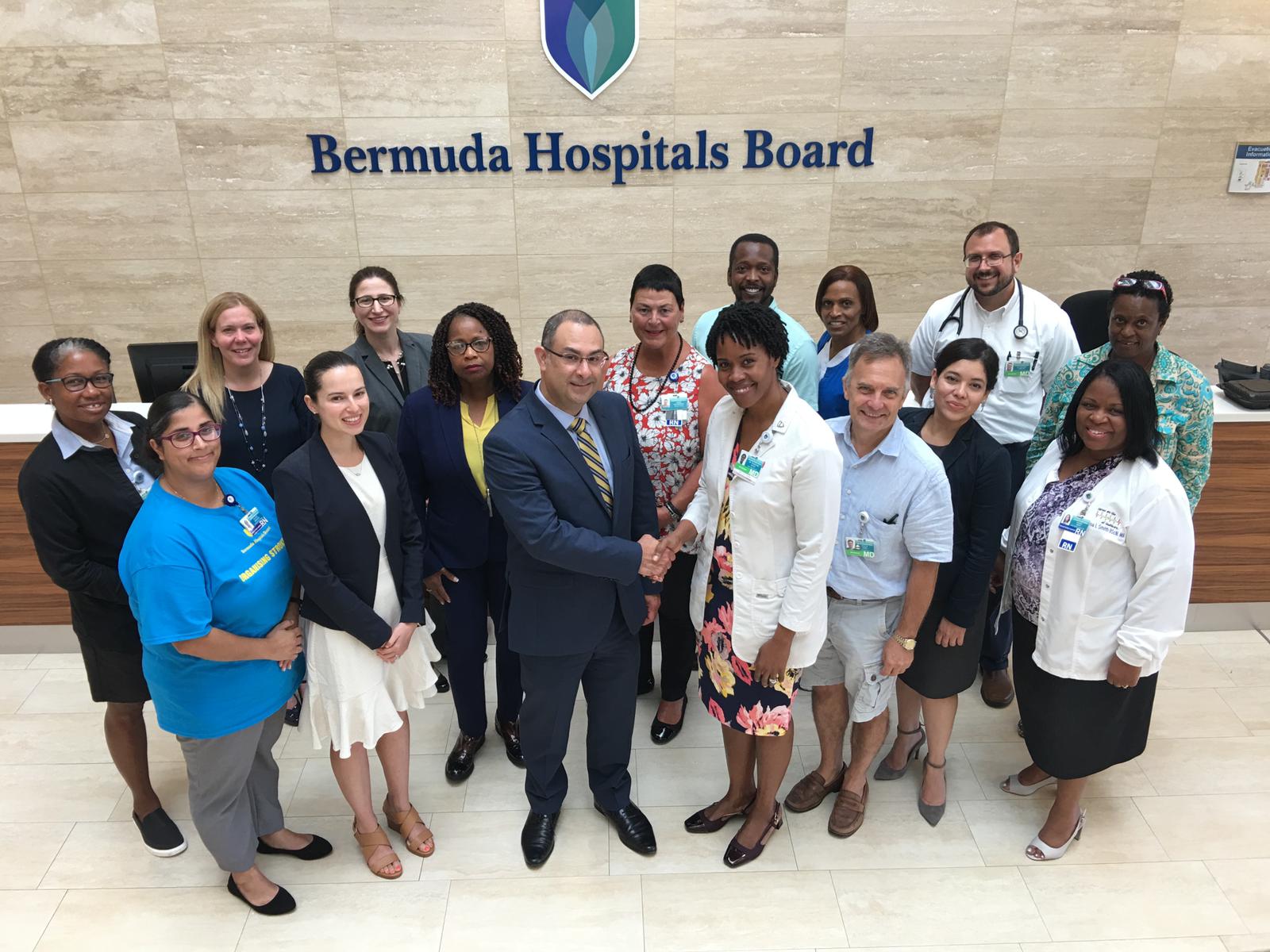Better Care, Better Prevention – Tackling Bermuda's Stroke Epidemic

Stroke is the second-leading cause of death and third-leading cause of disability worldwide. In Bermuda, up to five people per week arrive at the King Edward VII Memorial Hospital (KEMH) Emergency Department having suffered a stroke.
For a country with such a small population, this figure is startling and highlights why improving stroke care and prevention were key goals of the clinical affiliation between BHB and Johns Hopkins announced last year.
"We have a stroke epidemic in Bermuda," says Dr. Francene Gayle, the physician lead for BHB's Primary Stroke Centre. "Stroke is not just a medical diagnosis. It is a deep psychological wound and can be a major financial strain on a family, especially when the patient is of working age."
And the number of younger stroke patients is rising.
"We have seen increases in the number of strokes in the under-65 age range and have even documented acute stroke in patients as young as in their 20s," Dr. Gayle explains. "About 85% of our stroke patients are 65 years and older, but there are increasing numbers of stroke patients within the 45-64 age range, with 28 such patients in 2017 versus 46 in 2018. The 2019 figures are being collated, but initial reviews reflect this trend."
A BHB stroke working group now meets regularly, supported by a full-time stroke coordinator, to spearhead prevention efforts and improve care, collaboration and transitions within BHB. This working group draws physician leaders from across emergency, medicine, intensive care, haematology and pathology, endocrinology, cardiology, radiology and hospitalist medicine, in conjunction with other clinical leaders from nursing, nurse education, allied health services, EMS, diagnostic imaging, pharmacy and laboratory support.
The relationship with Johns Hopkins has been a vital support for BHB staff. "Having Johns Hopkins on our team is amazing," explains Dr. Gayle. "We get training, guidance and support from a world-class leader in stroke education, care and rehabilitation."
By providing educational support through observerships in Baltimore and on-site trainings in Bermuda, JHM is helping BHB further align all the departments that participate in stroke care, including critical care, nursing, social work, pharmacy, rehabilitation and pre-hospital emergency services.
"Highly organized, multi-team stroke care is critical for decreasing mortality, morbidity and hospital length of stay in patients with acute stroke, and it has been shown to improve patients' long-term functional outcomes," says Dr. Victor Urrutia, director of The Johns Hopkins Hospital's Comprehensive Stroke Center and a clinical champion of the BHB stroke initiative.
Building on these efforts, JHM and BHB are creating an integrated stroke program at KEMH that covers the continuum of stroke care, including prevention, pre-hospital care, acute care, rehabilitation and re-entry into the community. For the most serious incidents of stroke that require the care of a comprehensive stroke center, patients are referred overseas
Strengthening the partnership between BHB and community healthcare providers and agencies to educate healthcare professionals and inform the public is at the heart of the prevention work.
"This is an epidemic and requires all hands on deck," Dr. Gayle says. "We have been promoting the BE FAST acronym to the community and all our nonclinical staff. If someone experiences issues in balance, eyes, face, arms or speech, they need to act quickly because it could be a stroke."
Stories are already emerging where the BE FAST knowledge has made a difference. "A BHB staff member told her husband about the acronym, and when his colleague experienced these symptoms at work, he was the only one in the room who realized what was happening. It is a success story. She got to hospital and was treated quickly and made a full recovery."
"We are excited to continue our clinical affiliation with Johns Hopkins this year to improve stroke care and outcomes," says Dr. Gayle. "We will continue to push towards achieving consistent, excellent, evidence-based care in acute stroke and continue our public education thrust. We will be monitoring all the stroke care indices across the entire continuum and use these data to continue to refine our processes."
